Table of Contents
SOCIAL ACCOUNTS
Social accounts are still in development in the Ocean Accounts Framework, here we see in a South African context, the groundbreaking work of valuing something deeply important and intergral to inclusive marine management, but to date undocumented in any meaningful way in formal accounting systems. Yet another challenge in Ocean Accounts.
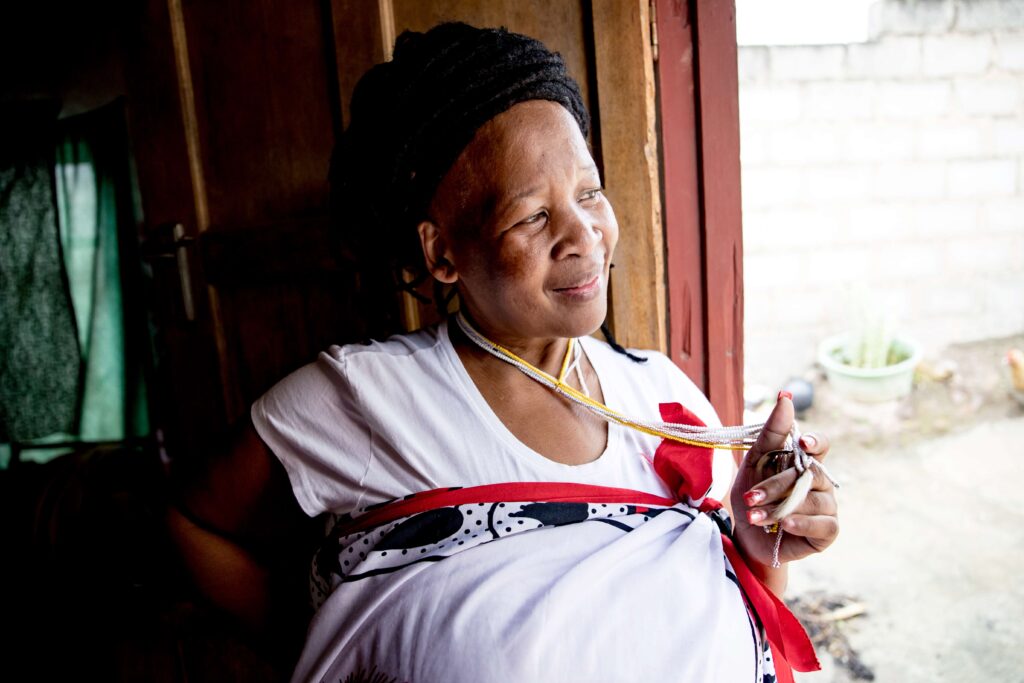
Cultural metrics
WP5 focuses on the inclusion of historical and social connections to the ocean as metrics within the Ocean Accounts Framework of cultural inclusivity and social equity indicators. To achieve this, WP5 uses social science research methods (oral history, interviews, community participation, observation and use of online engagement and assessment of social media content) to examine and document: the non-material impacts of (apartheid) forced removals of communities of colour from coastal areas in Algoa Bay. The project includes assessment of the impact of forced relocations on cultural heritage. WP5 also investigates the role of cultural non-use benefits in shaping society, culture and ultimately, economy.
The research conducted demonstrates the need to widen, deepen and deconstruct the ocean-accounts framework in the Western Indian Ocean (WIO), since the culture metric presently does not feature in the global ocean accounting framework and there are urgent calls for novel accounts that consider the social-ecological dimensions of ocean management.
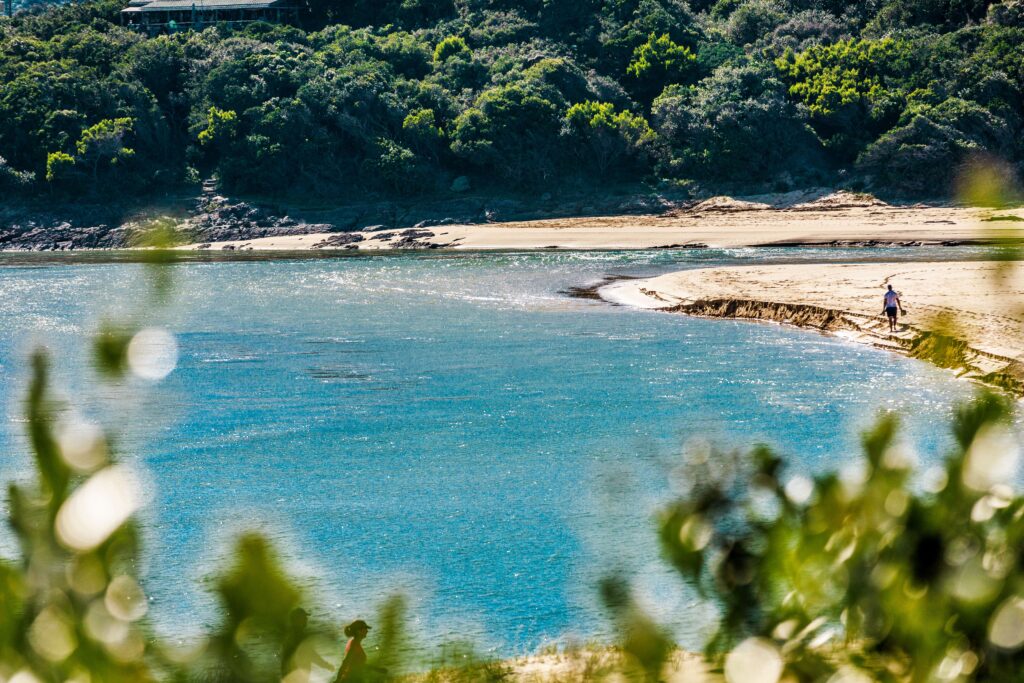
Equality and Inclusivity
Towns in which fieldwork was conducted in 2022 are:
- KNYSNA
- ST FRANCIS BAY
- PORT ELIZABETH
- COLCHESTER
- WALMER TOWNSHIP
- PORT ALFRED
- KENTON ON SEA
- HAMBURG VILLAGE
- NCERA VILLAGE
- CINTSA
- GONUBIE, EAST LONDON
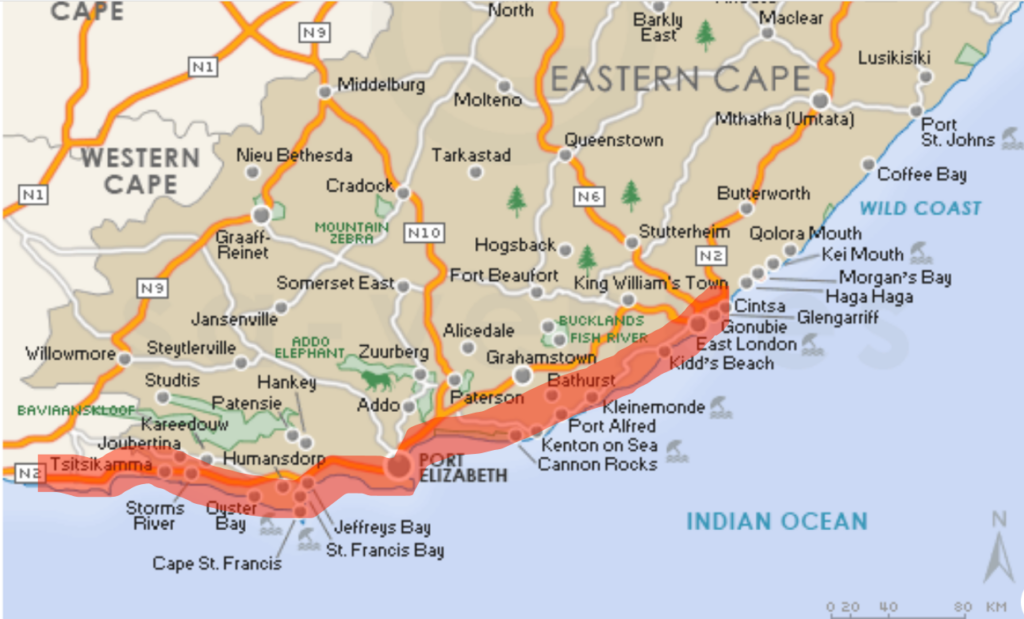
Regarding the site of South Africa, where the social and anthropological research of WP5 was conducted, the OAF effort to implement ocean policy and apply ocean-governance instruments is additionally critical because South Africa has a long history of inequality and exclusion. More inclusive and representative ocean-governance instruments and policies will have the effect of producing a more democratic and potentially sustainable ocean, as the framework will consider the linkages between biological and cultural diversity and seek to include them, as proposed in the Convention on Biological Diversity (CBD) ratified in 1992.
WP5 research also attended (in part) to gender equality, bringing into perspective the role of gender in the ocean accounting framework. The project achieved this via field-based research in local communities where women indicated their valuation of the sea and coast from a gendered perspective.
Please view the short film below which captures varying perspectives and culturally significant valuations of one’s relationship with the ocean. The film, one of several, was produced by Ocean Cultures and Heritage Chair Prof Boswell and her Research Team. Full credits and contact information can be viewed at the end of the film.
Additional film titles and associated book links can be found on the Resources page of this site.
Community Participation
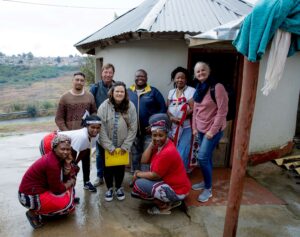
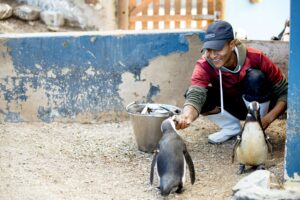
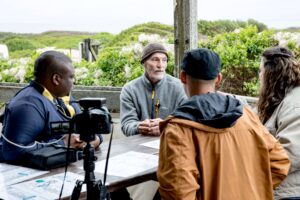
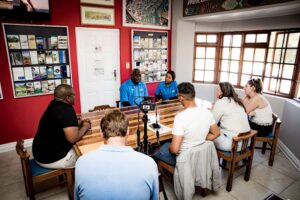
The field research engagements revealed the impacts of quotas, chokka permits (squid fishing licences) and the impacts of apartheid forced removals on local communities and the continuation of First Nations (Khoisan) cultural valuation of the oceans despite the impacts of colonial and apartheid rule. The research showed the need for deeper government consultation with First Nations people in the Eastern Cape, on indigenous knowledge and philosophy regarding ocean management, the institution of a Marine Intangible Cultural Heritage law (which takes into account indigenous conceptions and valuations of the coast and ocean), the leveraging of the Indigenous Knowledge Act 2019 for application in the marine and maritime domain and the usefulness of the First Nations Indigenous Knowledge forms for the proposed Ocean Act in South Africa.